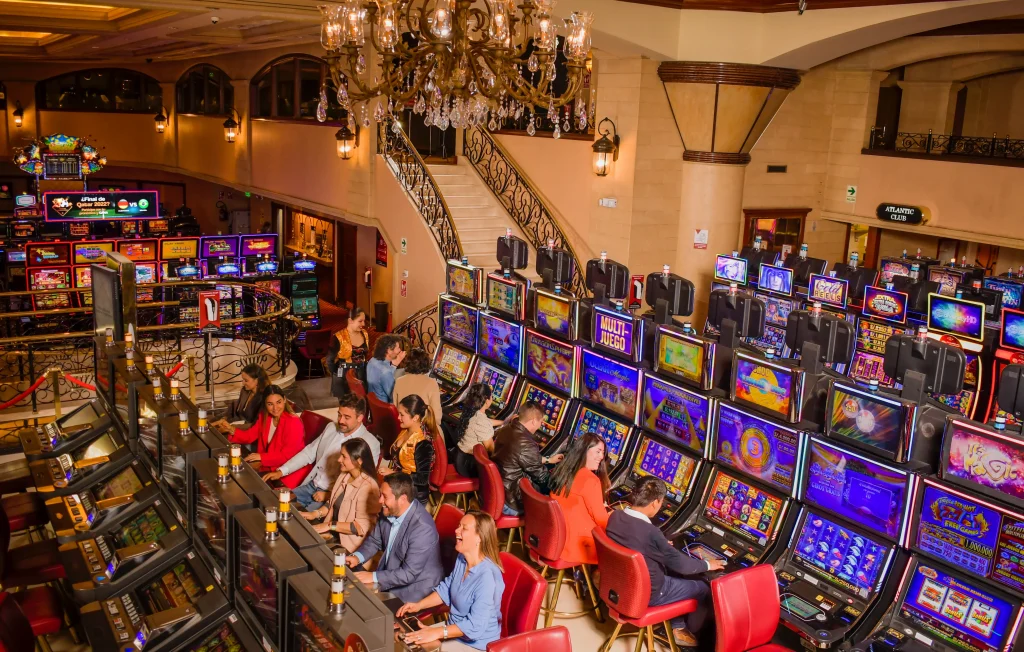
The environment of gaming experiences is quickly changing, propelled by advancements in innovation that are transforming how gamblers connect with their cherished activities. From the classic physical establishments to the virtual realm of internet-based gaming, the melding of novel tools is producing stimulating new experiences for enthusiasts around the globe. As we look forward, it is clear that the future of gaming will be characterized by enhanced interactivity, immersive visuals, and the use of data analytics to personalize the play experience.
In this fluid landscape, trends such as immersive reality, enhanced reality, and artificial intelligence are making considerable advancements. These technologies not only elevate the visual appeal of gambling games but also enrich the overall player experience by making it more immersive and adapted to unique tastes. As operators embrace these technological advancements, gamblers can expect to see a more captivating and immersive adventure into the world of gambling, where the options are bounded only by the imagination. bakar 69
Emerging Technologies in Gambling Experiences
The environment of gaming is transforming swiftly, propelled by advancements in technology that enhance the player experience. One of the most significant advancements is the integration of VR and augmented reality. These engaging experiences let players to step into authentic casino atmospheres from the convenience of their own space. With virtual reality headsets and specialized equipment, gamers can engage with online dealers and fellow gamers, making virtual gambling more exciting and communal.
Another technological advancement is the application of distributed ledger technology in gaming. This distributed ledger technology guarantees openness and fairness in gameplay. By utilizing this technology, casinos can offer players with provable proof of integrity in the games, building confidence in digital casinos. Moreover, blockchain enables smooth transactions with crypto tokens, giving players more options and safety while participating in their beloved games.
AI is also playing a pivotal role the evolution of the gaming industry. AI models are being employed to study player behavior, providing personalized gaming experiences tailored to individual likes. This creates improved customer service, more accurate game options, and strengthened security measures. As AI continues to develop, it will most likely transform the way players connect with casino games, building a more adaptive and interactive gaming setting.
Effect of Virtual Reality on Gaming Experience
The implementation of VR has revolutionized the way gamblers engage with casino games. By immersing users in a three-dimensional environment, VR allows players to perceive as if they are actually in a tangible casino. This enhanced sense of involvement not only boosts enjoyment but also adds an element of social interaction, where players can play games with peers from globally in a collective virtual space.
With the option to explore virtual casinos, players can select from a broad range of games, including slots, card games, and poker games, all presented in breathtaking detail. The realistic graphics and audio effects create an immersive atmosphere that mimics the excitement of a real-life casino. This level of involvement fosters a more profound emotional connection to the games, allowing players to completely partake in their gaming experience like at no other time.
Furthermore, virtual reality can introduce new gameplay mechanics that are not achievable in traditional settings. For example, VR can facilitate dynamic tutorials, helping new players to grasp the rules and tactics in an captivating manner. Additionally, creators can design unique game formats that exploit the capable capabilities of VR, offering fresh and exciting experiences that draw in both seasoned gamblers and newcomers alike.
AI’s Impact on Game Creation
AI is changing the field of casino game development by improving both player experience and game creation. With machine learning techniques, developers can analyze player behavior and choices, which allows the development of tailored gaming experiences. This level of personalization can result in greater player involvement and retention, as players believe that the games are tailored to their unique tastes and methods of play.
AI is utilized to boost the game design process itself. By simulating various gameplay scenarios, developers can rapidly detect what elements players enjoy and which features do not. This method grounded in data streamlines development and enables studios to innovate more rapidly, as they can change their design strategies based on real-time feedback. The incorporation of AI tools can lead to the development of more sophisticated and enjoyable games that keep players wanting to play again.
Additionally, AI plays a crucial role in maintaining fair play and security within the games. Advanced algorithms can detect patterns of cheating or fraudulent behavior, thus upholding the integrity of the games. With AI, casinos can adopt more effective security protocols, ensuring that both players and operators are secure. This does not just enhance trust in the casino setting but additionally fosters a healthier gaming ecosystem in general.
